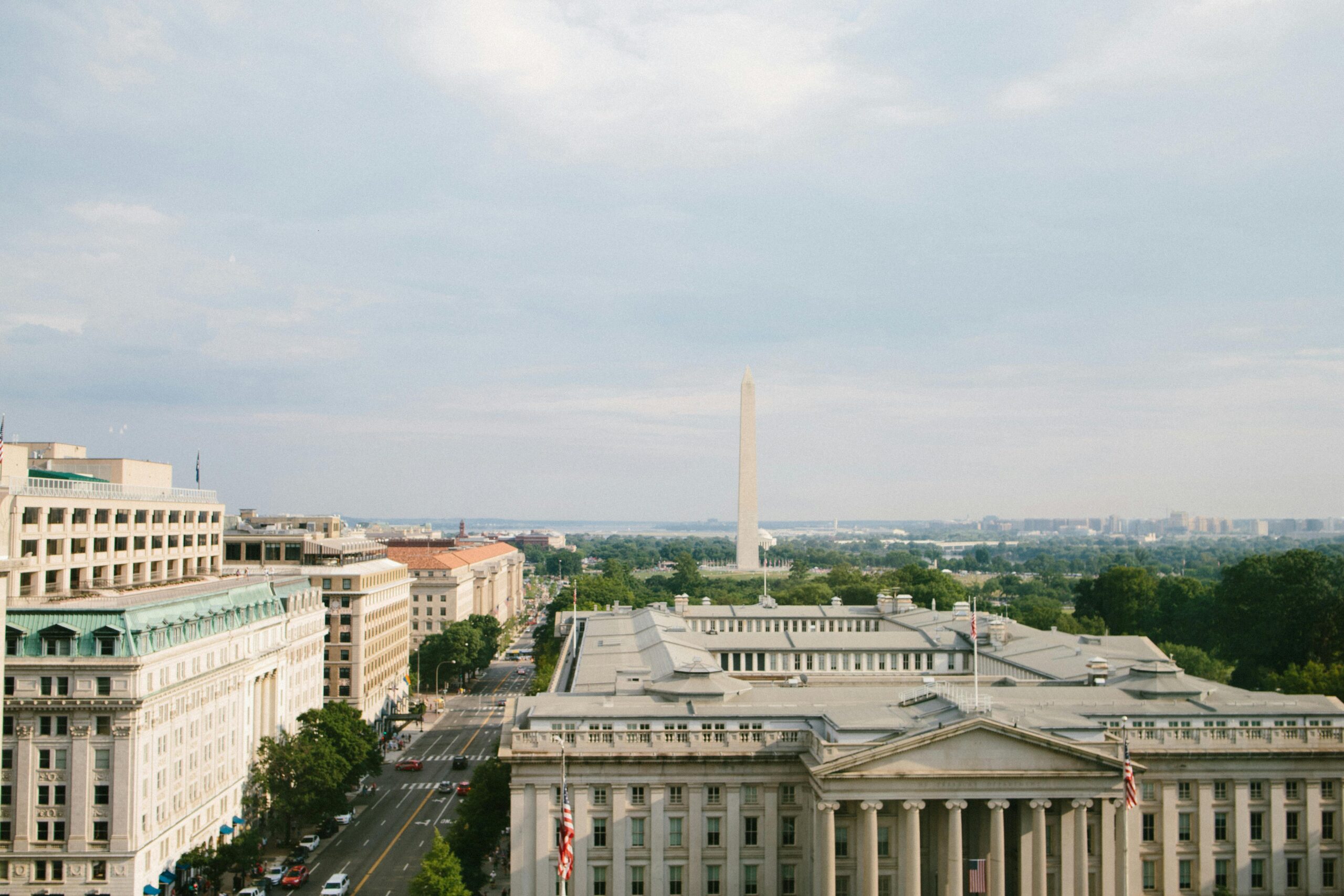Whether you’re a resident of the capital or just visiting, navigating the rules and regulations surrounding weed in DC can be overwhelming. The answer to “Can you buy weed in D.C.?” isn’t a simple “yes” or “no.” Still, we want to ensure you can enjoy your cannabis in the District while avoiding legal trouble. That’s why we’ve got you covered with a guide on everything you need to know to buy weed in DC, legally. In this blog, we’ll cover how residents and non-residents can purchase marijuana in the capital, with or without a medical card.
Understanding Cannabis Laws in D.C.
As of today, weed is not available for purchase in retail shops, meaning there are no DC recreational dispensaries. However, this doesn’t mean you can’t access marijuana in the capital. There are plenty of registered medical dispensaries, as well as shops where you can get weed through a process called “gifting.” We’ll cover how to get weed in DC below and important laws to know.
Is Weed Legal in Washington D.C.?
So, can you buy marijuana in D.C.? Technically yes, but there is quite a bit of nuance when it comes to who can purchase weed, where and how you can get cannabis, and how much you can possess. For now, the possession of both medical and recreational weed is legal in D.C. — but you can only legally purchase medical marijuana. To get recreational weed, you’ll have to get creative. Don’t worry — we’ll cover all of the details below.
Who Can Possess Cannabis in D.C.?
Anyone over the age of 21 — including non-residents — can possess up to two ounces of recreational marijuana in D.C. Age restrictions are less stringent for medical marijuana users. Those younger than 21 years old — including minors — can possess marijuana so long as they are medical card holders. However, minors (those younger than 18) who require medical marijuana must have a parent or guardian purchase it for them.
How Much Cannabis Can You Buy in D.C.?
Medical cardholders can purchase up to eight ounces of weed in a rolling 30-day period. Any amount purchased within that 30-day window will be deducted from the allotted amount until the 8-ounce limit resets at the end of 30 days. For example, if your 30-day period begins on January 1 and you purchase two ounces on January 4, you can buy up to six more ounces until the amount resets to eight ounces on January 31.
You cannot legally purchase any amount of recreational marijuana. However, you can purchase a non-cannabis product and receive a free “gift” of weed with your purchase. This is part of a ruling called Initiative 71, which we’ll get into below. Your gift cannot exceed one ounce per transaction.
How to Buy Weed in D.C.
If you want to buy weed in D.C., you have two options: receive a cannabis “gift” through Initiative 71 or purchase it at a medical dispensary. The good news is that finding both I-71 shops and medical dispensaries is easy in the Capital, and filling out the necessary forms shouldn’t take long. However, following the proper protocol, no matter which path you take, is essential to avoid legal complications.
Initiative 71 Gifting System
Want to buy weed without a medical card? Then you need to know about Initiative 71, which legalized the possession of small amounts of recreational weed back in 2015 — with some caveats.
Initiative 71 legalized the use of marijuana for recreational purposes so long as no money or goods were exchanged to obtain the weed. That’s where the process of gifting comes into play and the existence of I-71-compliant shops — which are as close as you’ll get to a recreational dispensary in the District.
You can choose from various non-cannabis products when you go to an I-71 shop. Each shop has its own offerings, from apparel and home goods to artwork and pet accessories. You can buy one of these items and receive a free weed “gift” with your purchase. Your receipt will not mention the cannabis — it will be for the non-weed product. You can only be “gifted” up to one ounce of weed per transaction — even though you can legally possess up to two ounces. So, if you’d like two ounces, you’ll need to purchase two non-cannabis products.
You do not need a medical marijuana card to shop at an I-71 shop. You do, however, need an ID showing that you are 21 years of age. Both residents and non-residents can take advantage of Initiative 71 weed gifts. If you only need a small amount of weed and want to avoid the lengthy process and fees associated with getting a medical card, I-71 shops offer an affordable, efficient way to get weed in D.C.
Medical Marijuana Dispensaries
While I-71 shops are convenient, they are not subject to the same regulations as medical dispensaries. For the highest-quality marijuana with verified, lab-tested cannabinoid profiles, medical dispensaries are the ideal choice. Here’s what you need to know as a resident or non-resident seeking medical marijuana in D.C.
Residents
Residents of the Capital who are 21 or older have the option to self-certify, meaning you can skip the process of getting a recommendation from a healthcare professional. Here’s how to self-certify:
- Fill out an online application, and be sure to check the “Self Certification” option
- Upload the necessary documents, including a photo ID and proof of residence
- Pay the fee
- Wait for the digital card to arrive in your email
Minors or those between the ages of 18 and 20 do not have the option to self-certify and must provide a letter of recommendation from a healthcare provider. Minors or caregivers of minors must submit a Minor Medical Cannabis Patient Application along with a letter from a doctor. Minor applications must be submitted in person, by mail, or by email to ABCA.CannabisInfo@dc.gov.
All medical marijuana cardholders, regardless of age or application method, must pay an annual registration fee to keep their card active. Once you have your digital card, you can show that to any medical dispensary and begin buying medical marijuana right away.
Non-Residents
If you aren’t a D.C. resident. but you have a medical marijuana card from a reciprocity state, you can walk into any medical dispensary in the District and buy weed. Don’t have a medical marijuana card? Visiting adults 21 and up can self-certify online to receive a temporary digital card. Here’s how to register for yours:
- Fill out the Non-Resident Adult Patient Application
- Select the number of days you wish to self-certify (from three to 365 days)
- Upload the necessary documents
- Submit your application, and wait to receive a payment link
- Pay your fee
Once you’ve paid, you’ll receive an email with a temporary, non-resident medical marijuana card. Now, you can buy weed at any medical dispensary in D.C.
Tips for Buying Weed in D.C.
With so many world-class museums, parks, and national landmarks — not to mention the incredible restaurants and cafes — countless experiences here pair perfectly with your preferred cannabis product. So, are you ready to buy weed in D.C.? Here are some tips to get started:
- Decide on recreational or medical. If you don’t need much weed, going the I-71 route and getting a “gift” with the purchase of another product might work for you. However, if you’re staying in the District longer or simply don’t want to purchase another item to get your weed, consider self-certifying for a medical card.
- Research gift shop menus. If you plan on getting a free weed “gift” with another purchase, make sure you like what the shop offers. You may as well buy something you’ll actually use, right?
- Choose pickup or delivery. Both medical dispensaries and I-71 shops deliver. So if you decide you want to relax and have weed brought straight to you, find a vendor who offers this service. Alternatively, if you like checking out the inventory and getting recommendations from the staff, visit a dispensary or shop in person.
- Have your documents ready. Get all applicable documents ready, such as your government ID and medical card.
Overall, D.C. is a cannabis-friendly place. In fact, you can choose to have your weed delivered to you just about anywhere — including a cafe or park. Just be aware that you cannot legally consume your cannabis products in public spaces.
Buy Premium Cannabis in D.C. with Sky’s the Limit
Find premium products that enhance your weed experience with Sky’s the Limit, your gateway to D.C.’s cannabis community. With accessories like vapes, glassware, and hookahs, we offer high-end products for enjoying your weed and a welcoming environment where you can connect with other connoisseurs. We also have a selection of quality CBD products for those looking for a more physically relaxing experience.
Our friendly, knowledgeable staff is always here to answer your questions — including questions about where to buy weed in DC. We’re happy to help you pick out products that will help you achieve the experience you’re after. Whether you’re visiting the District or living here, stop into Sky’s the Limit for customized care and top-shelf cannabis products.
FAQs
Still feeling confused about D.C. cannabis laws? We have your back with answers to common questions and facts about common D.C. weed misconceptions.
Where can you smoke in D.C.?
You can only enjoy your cannabis products — including flower, gummies, edibles, or any weed-containing substance — in a private residence. It is illegal to consume cannabis products in any place where the public is welcome, including parks, museums, restaurants, cafes, and sidewalks. It is even illegal to smoke weed in your own vehicle, unless your vehicle is on private property.
What types of cannabis products can I buy in D.C.?
You can buy a variety of cannabis products in D.C. from dispensaries and I-71 shops. These include flower, gummies, edibles, CBD, vape cartridges, tinctures, and topicals.
Do you need a weed card for a dispensary in D.C.?
Yes, you do need a weed card to shop at a dispensary in D.C. However, you don’t need a physical card. You can present your digital card and purchase products from any medical marijuana dispensary in D.C.
Do you have to be a D.C. resident to go to a dispensary?
No, you do not. You simply need to be a medical card carrier. If you already have a card from a state that receives reciprocity, you may use that to shop at a dispensary in D.C. If you do not have an eligible out-of-state card, you can apply for a temporary one during your visit to D.C.
Can I buy weed in Maryland?
According to Maryland weed laws, adults who are registered with the Maryland Medical Cannabis Commission and have a written certification from a registered provider can purchase weed from a medical dispensary in Maryland. Minors must have a caregiver purchase weed for them.



